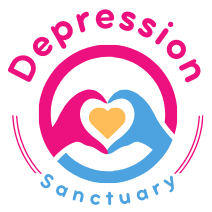Most people will experience depression symptoms at some time in their life. Feelings of sadness and upset are a normal response to stressful situations. Usually people are able to adjust and move forward within a fairly short amount of time. However, when a person’s ability to cope is pushed too far, they may develop what is known as Major Depressive Disorder (MDD). MDD is a more serious form of depression which may require treatment in order to get better.
Depression Symptoms According to the DSM-5
The symptoms of depression are outlined in a book called the Diagnostic and Statistical Manual of Mental Disorders (DSM-5). This book is a manual which doctors use in order to diagnose depression.
The DSM-5 states that MDD will have one or both of the following symptoms:
- A depressed mood
- A decreased interest in or ability to find pleasure in things that one used to enjoy.
In addition, a person must have at least five of the following symptoms most of the time for at least two weeks:
- Feelings of depression
- Greatly reduced interest or pleasure in most activities
- Significant unexplained changes in weight (gain or loss)
- Insomnia or oversleeping
- Agitation and an inability to sit still or, at the other end of the spectrum, slowness and lethargy in one’s movements
- Tiredness or low energy
- Feelings of worthlessness or excessive guilt
- Inability to think, concentrate or make decisions
- Recurring thoughts of death or suicide.
Other characteristics which a doctor will consider in determining your diagnosis are:
- Does it cause you significant distress and impairment in the various areas of your life, such as your social life and your job?
- Do you have any other possible explanations for your symptoms, such as substance abuse, a drug side effect or a medical condition?
- Do you have another mental disorder which might better account for your symptoms?
- Have you ever had a manic or hypomanic episode (elevated mood associated with bipolar disorder)?
What to Do If You Have These Symptoms
If you believe that you might have depression, it is important to pay a visit to your personal physician for a checkup. As mentioned above, it will be necessary to rule out any other possible medical conditions or medications which might be responsible for your symptoms. Once you have a clean bill of health, she will be able to refer you for treatment with the appropriate mental health professional. Or, in some cases, she may opt to treat you herself.
Common treatments for depression include medications called antidepressants and psychotherapy. Psychotherapy involves sitting in a room and talking with a trained professional in order to gain insights into your problems and make changes. Often a combination of medications and psychotherapy will give the best result.
In addition to antidepressants, doctors may prescribe medications to help with individual depression symptoms. Some examples of this would be sleeping pills for problems with sleep and anti-anxiety medications to deal with feelings of anxiety.
Nancy Schimelpfening is the founder of Depression Sanctuary. Unless otherwise stated, all of the content on Depression Sanctuary is written by and maintained by Nancy. Nancy has a master’s degree in community health education from Old Dominion University in Norfolk, VA. She was the About.com (now Verywell.com) expert on depression from 1998-2016. She has also written for other online publications, including Healthline, Healthgrades Professional, Health Digest, and MindBodyGreen.

